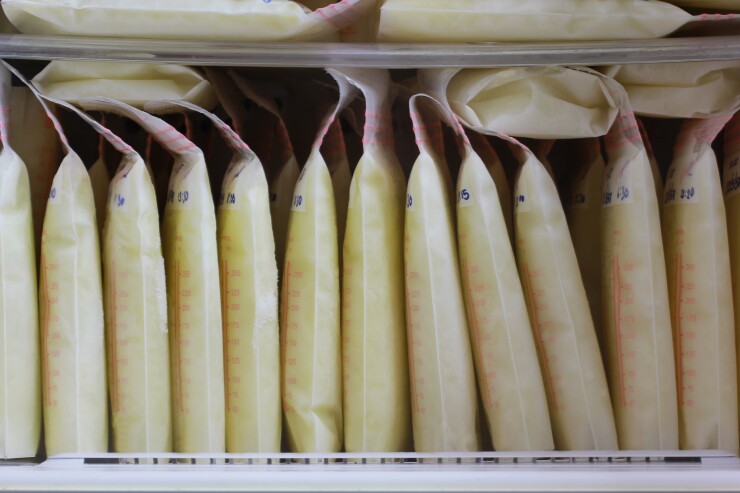LAS VEGAS — The origin story of Milk Stork, a breast milk shipping company, started with Kate Torgersen trying to figure out how to balance her professional responsibilities with her new role as the mother of twins.
Then she learned of an upcoming four-day business trip. This presented a dilemma: she would need to pump milk at a faster rate in order to provide her children with the nutrition they needed while she was away.
Over the three-week run-up to the trip, Torgersen pumped a total of two gallons of breast milk. While away, she continued to pump so she’d be able to continue providing sustenance to her children when she returned home. This led to difficulty for Torgersen on the way home when the TSA stopped her at the airport as she tried to get her milk through security.
Torgersen started Milk Stork the next day. Since its founding in 2015, the company has shipped more than two million ounces of breast milk across the U.S. Today, more than 500 U.S. employers offer the Milk Stork benefit, a number she expects to rise above 600 by the end of the year.
“The goal is to make it easier for women to stay engaged with their work without sacrificing the breastfeeding relationship,” Torgersen said at the 2019 Benefits Forum and Expo.
Employers are adding more such benefits that help employees bridge the gap between their work and personal lives. In particular, creating benefits that cater to the needs of working moms is another way for employers to demonstrate that they are willing to invest in the personal well-being of their employees; that no longer are they expected to leave personal issues in the parking lot.
Indeed, research shows that when employees feel that their company cares about them they are twice as engaged at work, four times less likely to suffer from burnout and nine times more likely to stay with the organization, according to data from Limeade, a company that measures employee engagement.
Breast milk shipping is a more recent arrival on the benefits scene. And while Milk Stork has had success partnering with different employers, it is up to the organizations to communicate the benefit to its employees in a way that will maximize utilization.
“We measure the impact of every communication we send out to see if there is an uptick in engagement,” Jason Russell, director of total rewards in North America at the software company SAP, said at the Expo. “Without fail, every time we communicate something we see the uptick in engagement.”
When SAP partnered with Milk Stork, it launched a full-out communication campaign complete with emails, webinars and learning sessions, as well as through social media and by connecting with the company’s women’s business network.
They key, Russell said, is to communicate with employees continually, not once a year during, say, open enrollment.
The message, he said, is one worth circulating. “You don’t stop being a parent just because you’re on the clock.”
Torgersen is looking forward to the day when breast milk shipping benefits are a normal part of an employer’s policy of supporting working families.
“Hopefully it is coming with federally paid parental leave and that will become the norm and then breast milk shipping will be table stakes for supporting families,” she said.






